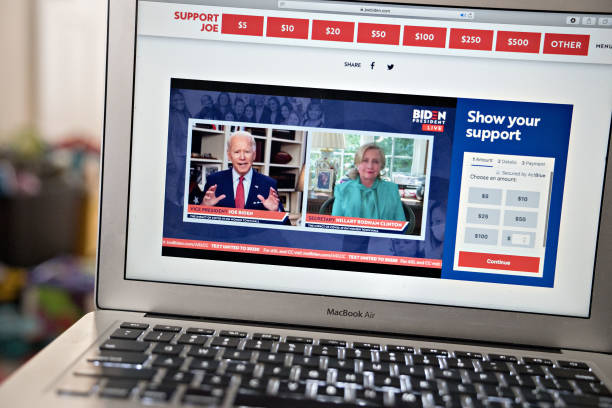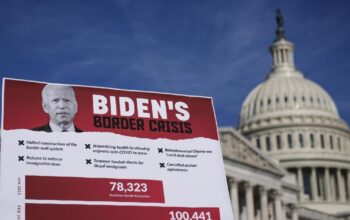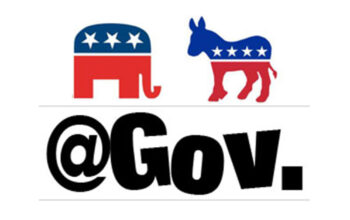Caroline Vincent, Reporter
@cvincentcourant
Since 1788, the presidential election has never been delayed or canceled. With the unprecedented COVID-19 pandemic, many Americans are worried and concerned that the November 2020 presidential election will be postponed. These concerns were heightened after a press briefing on April 13th, where President Donald Trump said, “when somebody’s President of the United States, the authority is total. And that’s the way it’s got to be. It’s total. It’s total.” This statement has led many Americans to pose the question: is the President able to postpone the election? The answer is no. The Constitution does not allow the election to be postponed.
Under the 20th Amendment, the President and Vice President’s terms end on January 20th at noon the year following the general election. However, a combination of state and congressional actions would be able to delay the election. Congress and the Governors could have the power to change the general election date, as well as the dates electoral votes are given to Washington and counted in Congress. To make these changes, consent from the House and Senate would be required, but this would be unlikely because the presidential election date has never been changed in response to an emergency. In 2012, Hurricane Sandy struck the East Coast days before the presidential election, causing many to question how the election could happen. But the election happened anyways, and Barack Obama was elected to serve his second term. The aftermath of Sandy led the National Association of Secretaries of State to form the State Laws and Practices for the Emergency Management of Elections, which outlines possible solutions to emergencies affecting the election, such as COVID-19. Although the traditional method of voting where people must gather in close proximity at polling places for an extended period of time will most likely not occur, the election is scheduled to take place on November 3.
Campaigning
Only a few people can withstand the long, grueling, and exhausting process of running for President. The campaigning process starts the day after the last election and goes until the day of the election. Typically, candidates are always on the road, hosting town halls, giving speeches, shaking hands, and finding every possible way to gain exposure. The outbreak of COVID-19 has put a halt in the traditional campaigning process, causing candidates to become creative in finding ways to maintain their campaign while staying safe. Former vice president Joe Biden has been hosting virtual town halls and rallies in an effort to continue his campaign. He has appeared on various late-night shows through Zoom from his Delaware home. Biden’s team has posted multiple virtual endorsements by other politicians, including those of Bernie Sanders, Barack Obama, Elizabeth Warren, and Hillary Clinton. Clinton even joined Biden in a Zoom town hall to discuss the pandemic’s effect on American women.
President Donald Trump has also put a halt on his usual campaign schedule, with his last in-person rally being held in March. Since then, he has held live streams, virtual town halls, and virtual rallies. However, Trump and his advisors have said that they still intend to hold the Republican National Convention in person this summer from August 24th to August 27th. At this time, it is difficult to know or even imagine if it will be safe for this to happen as planned. A virtual National Convention might need to be implemented instead.
Debates
With former vice president, Joe Biden being the presumptive Democrat nominee, a question has arisen: how will Biden debate presumptive Republican nominee, President Donald Trump? Currently, the Commission on Presidential Debates has said they will host three presidential debates in Indiana, Michigan, and Tennessee, and a vice-presidential debate in Utah later this year. The first debate is scheduled for September 29 at the University of Notre Dame, but there is no saying exactly how things will look by September. In a pre-recorded interview with Florida radio host, Enrique Santos, Joe Biden said that he is “ready to debate President Trump on Zoom or Skype, anytime he wants.” Late last year, President Trump wrote on Twitter that although he wanted to debate the Democratic nominee, he was concerned that the Commission on Presidential Debates (a nonpartisan entity) was “biased” against him. He tweeted, “I will make a decision at an appropriate time but in the meantime, the Commission on Presidential Debates is NOT authorized to speak for me.” However, when asked in February if he would debate the Democratic nominee by reporters in the Oval Office, he said, “Yeah, sure. I look forward to it, actually.”
The final Democratic primary debate was held on March 15, amidst the start of the COVID-19 global pandemic, setting a model for what to expect from presidential debates. The debate between Biden and Senator Bernie Sanders was held without a live audience, and in place of a handshake, the two politicians bumped elbows and stood at podiums positioned six feet apart. It is safe to say that this presidential debate will be unlike any other, in terms of logistical challenges and rising political tension.
Voting
The United States has been gradually moving away from the usual model of voting at polling places where people must gather in large groups for an extended period of time. Congress passed a law in 2010 requiring electronic balloting for military and overseas voters, and some states currently require accessible at home voting for blind and disabled voters. The option of using more advanced technology to vote at home, such as secure, transparent, and cost-effective voting from mobile devices, has been explored for the future. But, unfortunately, this type of technology would not be available for the November election. The option of a hybrid model – mobile phone voting with paper ballots for tabulation – is being developed in certain jurisdictions. It is unclear exactly what will happen in November, but these new ways of voting give hope that the election will not need to be postponed. Hopefully, voters will not have to choose between protecting their personal and public health or exercising their right to vote.



